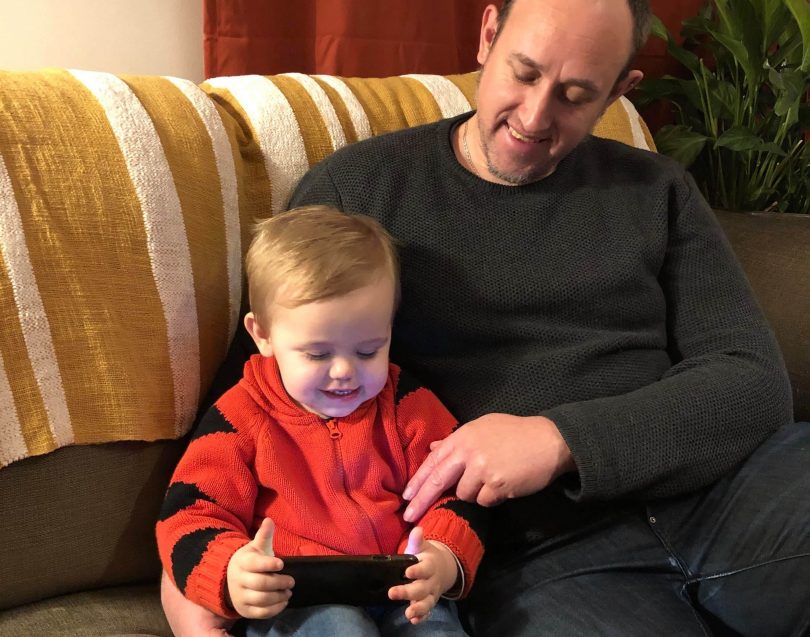
Gavin and Gus staying connected with grandparents during COVID-19. Photo: Supplied.
A lot happens during six months in the existence of two-and-a-half-year-olds.
New words, new movements and new feelings as big changes take hold of their precious little lives. From the fun and jovial, to the confusing and overwhelming, every moment matters.
The laughter, the tears, the developmental milestones – they comprise the joy of parenthood and are meant to be shared with loved ones.
For grandparents, the special bond with a grandchild is unique, and the special transitional period from baby to toddler is important to treasure.
Living apart from children and grandchildren can be difficult in the normal course of events, but add a global pandemic into the equation and it brings an especially unwelcome dose of separation anxiety.
The fear of the unknown from COVID-19 affects us all. Lockdown measures have seen families separated for prolonged periods. In the case of myself, my wife Natalie, and our son Gus, we haven’t seen my parents face-to-face in six months.
We are based in Sydney, while my mum and dad are in Canberra, where I was born and raised. During those six months, Gus has come a long way.
He’s discovered cricket and the Canberra Raiders, inducing emotional scenes from his sports-mad dad.
He’s added amazing words and phrases to his vocabulary that have us scratching our heads wondering where he picked them up from (fortunately no rude ones, yet).
He’s learnt to express his love for us through heartfelt leg hugs while we wash the dishes, or a whispered “I love you, mum” as he’s drifting off to sleep.
Unfortunately, COVID-19 and the tyranny of distance has prevented nanna and grandpa from witnessing these cherished events. Canberra and Sydney may only be separated by three hours on the Hume, but during a global pandemic, where people aged in their 70s are at heightened risk – and taking precautions and keeping distance is paramount – they are worlds apart.
When the COVID-19 curve was flattened in early June, it appeared as if we’d all be able to see each other again. There were a couple of aborted trips, and then as the pandemic’s second wave kicked off, even meeting halfway around Mittagong seemed an unnecessary risk.
The chances of us all connecting in person and coming away unscathed are good, but it’s a chance we are not willing to take.
We regularly make FaceTime calls where Gus gets to lean into the phone – he already seems a pro at navigating a smartphone – and call nanna and grandpa by name. And they get to see him express new words and show off how well he climbs the furniture. But it’s not the same.
Sometimes the wi-fi plays up, or Gus is snoozy and not at his best (although we’ve learnt to keep the calls away from pending bedtime). However, they are still video calls that allow grandparents and grandchild to connect. This is the tech world he has been born into and we are embracing it when it’s all we have.
The struggles of being separated by just three hours may be what the internet would refer to as a “first-world problem”, but this is our relative experience against the backdrop of a very real all-of-world problem.
Hopefully the time will come sooner rather than later when we can all meet up again. Gus will be able to embrace his grandparents – and I can hug my parents, and my wife can hug her parents-in-law – and the troubled times of the past six months or more will evaporate as we look forward to a rosier future.
In the meantime, we keep our distance knowing it’s a small sacrifice to make to ensure that future is there for all of us to enjoy.
Original Article published by Gavin Dennett on The RiotACT.







